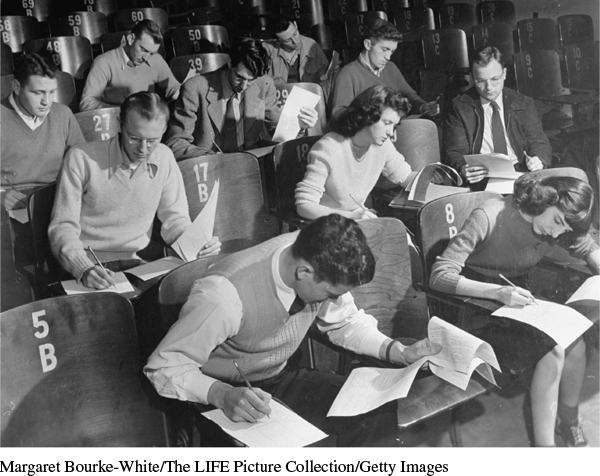Economic Conversion and Labor Discontent
Even before the war ended, the U.S. government took some steps to meet postwar economic challenges. In 1944, for example, Congress passed the Servicemen’s Readjustment Act, commonly known as the GI Bill, which offered veterans educational opportunities and financial aid as they adjusted to civilian life. Nevertheless, veterans, like other Americans, faced shortages in the supply of housing and consumer goods and high prices for available commodities.

President Harry Truman ran into serious difficulty handling these and other problems. In the years immediately following the war, real incomes fell, undermined by inflation and reduced overtime hours. As corporate profits rose, workers in the steel, automobile, and fuel industries struck for higher wages and a greater voice in company policies. Truman responded harshly. Labor had been one of Franklin Roosevelt’s strongest allies, but his successor put that relationship in jeopardy. In 1946 the federal government took over railroads and threatened to draft workers into the military until they stopped striking. Truman took a tough stance, but in the end union workers received a pay raise, though it did little to relieve inflation.
Political developments forced Truman to change course with the labor unions. In the 1946 midterm elections, Republicans won control of Congress. Stung by this defeat, Truman sought to repair the damage his anti-union policies had done to the Democratic Party coalition. In 1947 Congress passed the Taft-Hartley Act, which hampered the ability of unions to organize and limited their power to strike if larger national interests were seen to be at stake. Seeking to regain labor’s support, Truman vetoed the measure. Congress, however, overrode the president’s veto, and the Taft-Hartley Act became law.
Exploring American HistoriesPrinted Page 827
Exploring American Histories Value EditionPrinted Page 608
Chapter Timeline